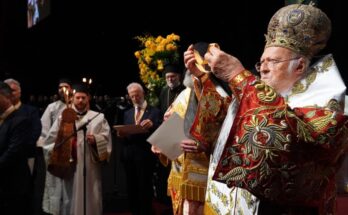
The Greek language is undeniably quite rich. Through Greek, everyone can express many meanings with the same word. For instance, “Philippos” in ancient Greek means the friend of a horse, while the word Alexander, when analyzed, means the one who fights and repels enemies. There is also the ancient Greek wish of a mother to her son, which contains six words and only vowels. There is not a single consonant.
Once, the French writer Jacques Lacarrier said: “In Greek, there is a vertigo of words, for it alone has explored, recorded and analyzed the intimate processes of speech and language as no other language has done.”
The ancient Greek wish of a mother containing only vowels
“OIA ΗΩ Ω YIE ΑΕΙ EI”, which means “Like the dawn, my son, be always!”.
The wish consists of six ancient words, fourteen vowels and one phrase. So there is not a single consonant.
OIA: As
ΗΩ: is the dawn
Ω YΙE: my son
ΑΕΙ EI: Be always!
The oldest language in the world
According to studies, the Greek language is one of the oldest in the world, and an estimated 30 to 35 languages can trace some of their language back to Greek.
A remarkable 41,615 words out of a total of 490,000 words in the English language come from Greek, while 90 percent of medical terminology also does so.
The value of the ancient Greek language
Referencing its aforementioned utility, an assistant professor of international and European studies at the University of Macedonia, Nikos Vassiliadis, in speaking to APE – MPE, substantiates the argument to recognize the value of the Greek language at a global level by institutions of Greek cultural diplomacy in cooperation with the Hellenic diaspora.
This, he says, “could capitalize on the Greek brand name in culture, with positive results in the promotion of Greek national objectives, as a form of soft power in international relations and interactions.”
Greek speeches that have gone down in history
Vassiliadis pointed out, as a typical example, the historic speeches delivered in 1957 and 1959 in Washington by Xenophon Zolotas as governor of the Bank of Greece and manager of the Greek public debt.
In these speeches in the English language, the majority of words were of Greek origin, with the exception of references as well as articles and prepositions.
Vassiliadis also quoted the words of the Greek poet Odysseus Elytis in his lecture when receiving the Nobel Prize for Literature: “Uninterrupted, during these 25 centuries, poetry was written in Greek and all that it has collected over the centuries is what has made this burden valuable and the legacy it has left very large,” he said.



